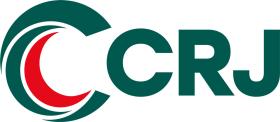Biodiversity partnership for HeidelbergCement

Company in co-operation agreement with BirdLife International to jointly preserve biodiversity at quarries
ON 16 September 2011, HeidelbergCement and the internationally recognized nature conservation organization BirdLife International signed a co-operation agreement, the primary goal of which is to further improve the protection of biodiversity at quarrying sites.
‘We are pleased that, in BirdLife International, we have been able to attract a highly competent partner for the further development of our biodiversity management,’ said Dr Bernd Scheifele (pictured), chairman of the managing board of HeidelbergCement AG.
‘Together, we will analyse and optimize our existing work and define new activities in order to promote the preservation of biodiversity at our quarrying sites even more effectively. We will give BirdLife insight into the workings of our quarries and sand and gravel pits throughout the Group and implement biodiversity management projects at these sites together.
‘These projects should make our impact on flora and fauna transparent, assess the effects, and deliver improved approaches that will allow us to give back to nature more than we have taken.’
The co-operation is initially scheduled to last three years. In year one, a biodiversity strategy for the partnership will be developed jointly; in year two, joint biodiversity projects will be formulated in different countries; and from the third year, the first pilot projects in Europe will then be implemented and documented.
In a separate development, HeidelbergCement have initiated the Quarry Life Award, an international competition to find new ideas for the conservation and promotion of diversity in quarries and gravel pits, which will take place in around 15 countries in Europe, Central Asia and Africa.
Students, scientists and NGO co-operations are invited to submit project proposals to www.quarrylifeaward.com by 17 February 2012. From March to September 2012 selected quarries and gravel pits in the participating countries will be open for the applicants’ best projects.
Projects submitted must focus on the following key topics: Discover biodiversity in quarrying sites; Biodiversity and rehabilitation; Biodiversity and education; and Biodiversity management during extraction.
After implementation of the projects on site, three winners per country and three global winners will be awarded prizes. National awards of €1,500, €3,000 and €5,000 as well as global awards of €10,000, €20,000 and €30,000 will be granted to the winners.


